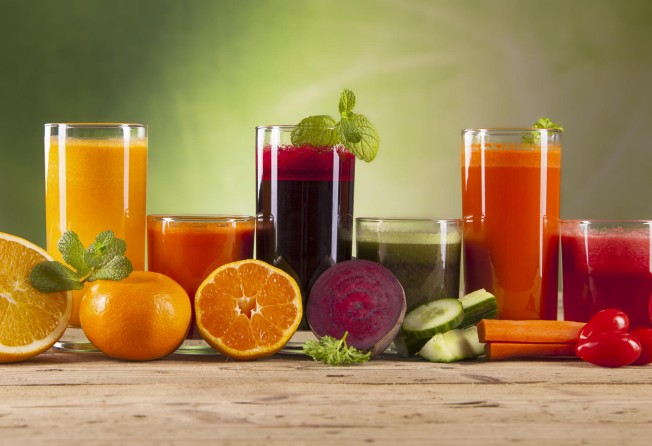Jury still out on the benefits of slow juicers
Slow juicing is becoming more popular amid claims that high-speed processing destroys nutrients in the food. But some health experts aren't swallowing it, writes Nan-Hie In

Freshly squeezed juice is no doubt healthier than store-bought varieties with added sugar. But some health foodies claim that putting juicing in the slow lane is even more nutritious.
This is done by picking the right machine: masticating juicers that virtually "chew" fruits and vegetables at low speeds to tease out the nectar.
Slow juicing is becoming more popular, and an increasing number of juicer models with lower revolutions per minute (rpm) are appearing on the market. The bottles of liquid from juice detox companies Be-juiced Hong Kong and The Genie Concept, for example, have been extracted this way.
Erica Fong, health blogger at healthyhongkong.wordpress.com is a convert. Since getting her own slow juicer, she no longer gets fast-whizzed juices from street vendors in Central. "It's a huge difference to not have greenish or greyish foam on top of the juice, which I don't get from the fresh juices I make at home now," she says.
Traditional juicers, or the centrifugal kind, use fast-spinning grinding blades to tear apart produce. Compared to slow juicers, which operate at about 80 to 200 rpm, traditional juicers operate from about 3,500 rpm to more than 10,000 rpm. This generates heat and exposes ingredients to the air, both of which are said to kill nutrients and neutralise temperature-sensitive enzymes.
A video posted last year on popular website tested.com that pits a centrifugal juicer against a masticating juicer shows visual proof of the difference in the final product: the juice from a centrifugal model has a layer of froth, indicating oxidation, and the pulp tends to be wetter, indicating more waste.
Juice from a masticating model is said to be "cold-pressed", since it's produced without added heat. Green leafy vegetables and wheatgrass tend to do better using these juicers, and some models even process nuts and soy, doubling up as a machine to make all-natural nut butters, baby food, soy and almond milk, and other healthy snacks.
Brian Ku, founder of health food store Green Vitamin, says since he started drinking cold-pressed wheatgrass daily two years ago, his energy levels have risen and he can't remember when he last got the flu.
But some health experts aren't swallowing claims that slow juicing produces more nutritious drinks.
"Yes, high speeds may generate heat that may destroy some nutrients such as vitamin C, [but] air and light can also destroy vitamin C," says Professor Michael Hui King-man, chairman of the Consumer Council's publicity and community relations committee.
The academic was part of a team that produced a report last year which examined a dozen blenders and juicers in the market. They found the health promises made by five models questionable, including those that claim to produce juice that promotes faster and better nutrient absorption compared to having whole fruits and vegetables.
"According to health care professionals, consumption of fresh fruit and vegetables reduces the risk of heart disease, hypertension and certain cancers. However, they are not aware of any scientific evidence which demonstrates that processing fruit and vegetables by a blender or juicer would enhance these health effects," says Hui. Also, faster and better nutrient absorption isn't a good thing for everyone. "Dietitians warn that fast absorption of sugars from food or juice may lead to a rapid rise in blood sugar, which is undesirable to diabetes patients," says Hui.
Registered dietitian Charmain Tan of Seventeen Nutritional Consultants says almost all her clients drink fresh juice daily. "But if drinking juice is so healthy, why have they ended up in my clinic with high blood sugar or overweight problems?" she says.
Tan adds that juice drinkers may be missing out on fibre, which is stripped from whole produce that's juiced. "Fibre helps to maintain satiety, lower cholesterol and glucose levels and prevent constipation," says Tan, adding that the recommended intake is at least 25 grams daily.